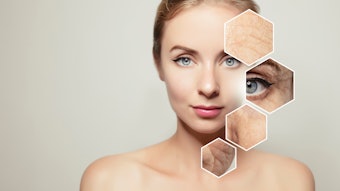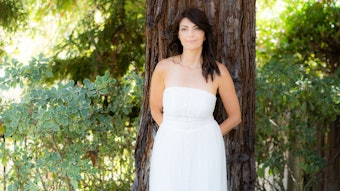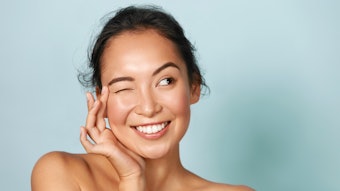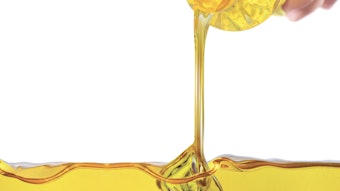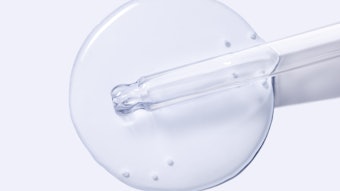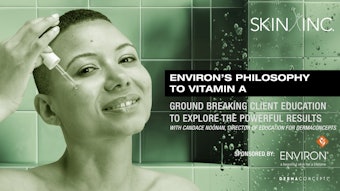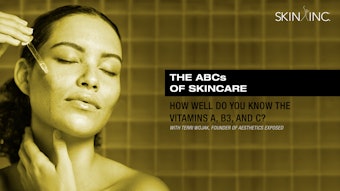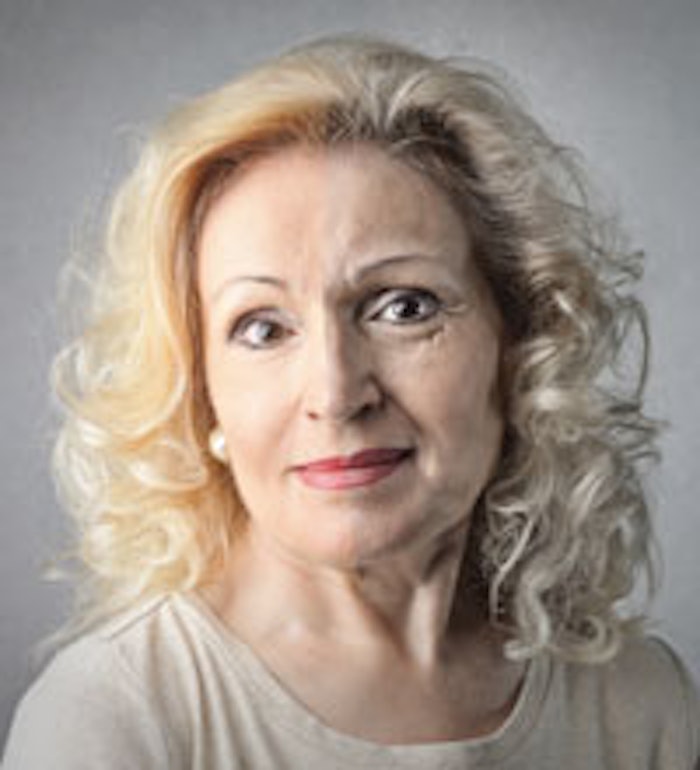
Increased life expectancy has changed the concept of aging and, in turn, has propelled anti-aging research, leading to a multitude of topical applications. However, “anti-aging” is a controversial topic. Aging is a natural process written into the laws of the universe. No living organs have ever reversed the signs of aging, although medical science is in the midst of several theories that hope to prolong life and minimize diseases that are more prevalent as cells age.
The seven signs of aging
Forget about anti-aging; instead, focus on minimizing age-related signs of both intrinsic and extrinsic aging. Learn how to prevent the signs of aging and help your clients remember that their true biological age is determined not by their years, but by the state of their body’s structure and function, as well as their emotional and psychological well-being. That means that the more the body is supplied with healthy nutrients to protect cells from environmental damage, the younger it will look and feel at any age.
The skin is the largest organ of the body and the outward manifestation of inner health. In the cosmetic world, there are seven signs of aging that are traditionally accepted.
- Fine lines and wrinkles
- Uneven skin texture
- Uneven skin tone
- Surface dullness
- Enlarged pores
- Age spots
- Loss of elasticity and firmness
Ingredient innovations
There are a bevy of ingredients that can be used to help strengthen the skin.
Alpha hydroxy acids (AHAs). These are a group of acids—glycolic being the most popular because of its smaller molecular size. Skin cell turnover rates slow dramatically as a person ages, which is why older skin has a drier, rougher look and feel. This dryness also impedes the ability of the skin to absorb moisture and active ingredients. The primary function of AHAs is to help increase the exfoliation of dead skin cells to reveal a younger, healthier, more hydrated complexion. Exfoliation of dead skin cells gives immediate visibly younger-looking skin.
Antioxidants. These powerful free-radical fighters are in almost every anti-aging formulation. Antioxidants help to stabilize free radicals by donating one of their electrons. Free radicals are known to damage healthy skin cells, thereby making antioxidants heroes in the fight against the signs of aging. While single antioxidants have been promoted as the most potent, a complex of antioxidants is often needed, working synergistically for optimal results. Some of the most popular antioxidants found in anti-aging formulations are vitamin C, co-enzyme Q10, grape seed, zinc, lutein, ferulic acid, green tea and pine bark extract. Glutathione is the master antioxidant of the group, said to be the leader in promoting the redox theory (the cascading effect of all antioxidants working together) in the nutritional world.
Dehydroepiandrosterone (DHEA). A powerful pro-hormone that accelerates natural anti-aging functions, DHEA is known as the “youth hormone” because it is abundant in young skin and decreases with age. It acts as a defense against environmental aggressors that can age skin by boosting immunity while increasing the efficacy of other actives.
Essential fatty acids. It is a well-documented fact that inflammation in the body is the cause of most disease and cell deterioration. This is true for the aging of the skin and its ability to repair itself. Omega-3 essential fatty acids taken both systemically and added to the base formulations of anti-aging skin care has been shown to help not only reduce the wrinkling of the skin, but also to aid in the prevention of eczema and psoriasis. As powerful as naturally occurring ceramides, these fats hold the cells of the epidermis together to reinforce the skin’s protective barrier while helping to reduce its inflammatory process.
Hyaluronic acid. Young, healthy skin has a dewy and moist look and feel. Hyaluronic acid is a sugar molecule found naturally in the skin that increases its ability to hold moisture. Capable of holding 1,000 times its weight in water, hyaluronic acid is found in almost every quality anti-aging product. Available as part of serums or creams, this ingredient can be used by even oilier skin to help retain moisture. Remember: Some forms of hyaluronic acid are purer than others.
Hydroquinone/holistic skin lighteners. Nothing gives away age more easily than those unsightly brown spots on the face and hands, which is the reason they are known as “age spots.” They are the result of cumulative sun exposure, but may also result from some medication, such as birth control pills, or increased estrogen during pregnancy. Hydroquinone is one of the most popular anti-aging ingredients. Available over-the-counter in percentages up to 2%, it can reduce the development of melanin in the melanocytes. In combination with exfoliating the skin and diligent use of daily sunscreen, hydroquinone is very effective
in helping to reduce pigmentation. Results take
30–60 days. Physicians can offer a combination of tretinoin and hydroquinone at higher percentages. Although hydroquinone is effective, it should not be used for more than 90 days, because it is metabolized through the liver. A good follow-up routine should include any of the holistic skin lighteners, such as arbutin, bearberry, kojic acid and vitamin C.
Niacinamide. Niacinamide is a water-soluble B-3 vitamin found naturally in the body. Forms of vitamin B-3 that are typically found in skin care products are niacin amide, nicotinic acid and nicotinate esters. Clinical studies show a range of benefits, including reduction in fine lines and wrinkles and pore size, and decreased appearance of hyperpigmentation.
Peptides. Loss of elasticity and firmness lead many women to stand before the mirror and hold up their faces. Peptides are natural or synthetic compounds containing two or more linked amino acids. Peptides of particular interest to the cosmetic industry include pal-KTTKS, or Matrixyl. In in vitro studies, these ingredients seem to stimulate collagen production and reduce excess dermal glycosaminoglycans (GAGs); the same qualities attributed to retinoids.
Probiotic lactobacillus. A proven anti-aging active in the health care industry to help increase the body’s immune system, probiotics are now being used in skin care formulations to increase the strength of the skin. Probiotics are friendly bacteria that help the skin maintain balance and improve its ability to protect against environmental damage. By helping to protect the cell membrane, skin remains more elastic and resilient.
Retinoids. A derivative of vitamin A, retinoic acid is the functional form of vitamin A in the skin and is considered to be the gold standard anti-aging ingredient. In vitro studies demonstrate retinoid-induced changes in the expression of the genes relevant to dermal matrix production, epidermal differentiation and melanin production. Retinoids stimulate the production of collagen and decrease the production of dermal GAGs, which are known to destroy collagen production. Retinoids are also known to increase the production of epidermal hyaluronic acid.
Whole-body wellness
Wrinkles and poor skin texture are among the earliest signs of aging. Throughout time, the skin becomes thinner, drier and less elastic. Although genetic predisposition is a factor, it is now believed that environmental irritants play a much bigger role in the aging of the skin. Overexposure to sunlight is the main culprit of premature age-related changes: wrinkles, roughness, pigmentation, loss of tone and dilated blood vessels. The first and most important anti-aging ingredient is a good sunscreen that is used properly. Proper use means applying enough and as often as every two hours when in direct sunlight. Next is health habits, such as exercise, which facilitates blood flow and helps bring nutrients to the skin. Advise clients to optimize their immune system by eating fresh, organic produce and drinking plenty of water to hydrate the cells. Along with the proper topical skin care, whole-body wellness is crucial when developing an age-prevention strategy with your clients.


